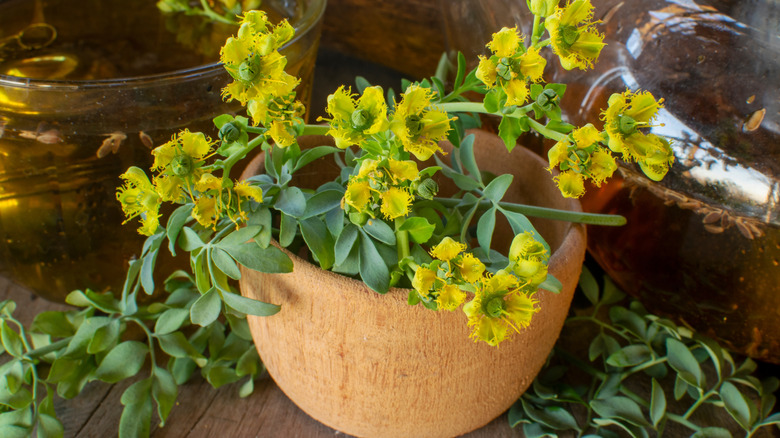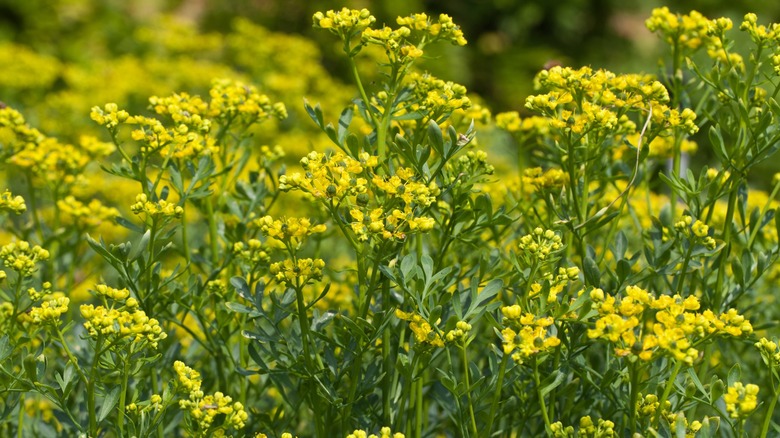Why Do People Use Rue To Get Rid Of Flies In The House & Does It Actually Work?
Finding ways to naturally keep flies out of the house can be frustrating if you feel like you've tried everything. But is there a foolproof way to deter flying insects without resorting to harsh chemicals? One unique repellent uses the leaves of the common rue (Ruta graveolens) plant. It can actually work to repel flies and mosquitoes; however, it might not be the ideal herb to keep around your house. People often use a bowl of vinegar to trap fruit flies and flies, but many people might seek rue as an alternative. You should know it can be toxic to pets and it may cause contact dermatitis.
Originally native to southern Europe, the Romans spread rue throughout northern Europe and England. The household use of this herb, also known as ruda or herb of grace, stretches back into antiquity. At one time, rue was a common ingredient in cooking and folk medicine. In Europe during the Middle Ages, crushed herbs, including rue, would be strewn on the floors of homes. One reason was to ward off the plague and other evils. It also appears to keep pests away.
In modern times, people still suggest hanging sprigs of rue in your home to take advantage of its deterrent effect. Once you smell the strong scent of this herb, you'll realize why flies might be repelled. Thanks to its acrid, bitter scent, rue can keep pests at bay in the garden via companion planting. People seek to replicate this phenomenon by putting leaves from the plant in their homes. However, harvesting and hanging the bare leaves of this herb may not be the best option.
Using rue in your home might make you a little rueful
Common rue has largely been forgotten by modern herbal users, and for good reason. While rue's scent might repel flies, it also causes skin reactions in some people. According to the Dermatitis scientific journal, it's especially true for those who handle rue and then have any level of sun exposure. People may develop a type of skin irritation characterized by delayed blisters and discoloration.
It can also be dangerous to keep around your pets. Although it has been employed throughout history for its medicinal properties, eating large amounts can be moderately toxic. Be aware that rue is just as unpleasant for your cats and dogs to ingest, with symptoms of overconsumption being stomach pain, vomiting, and confusion.
Considering some of the harmful properties of this herb, you probably will be better off planting it outside (and sticking with your vinegar traps inside) as some gardeners plant rue to discourage lizards from entering the home. Or, you could opt for another popular herb for a vinegar-free solution — lemon balm. Lemon balm contains heavy concentrations of citronellal, a known insect repellent. And this herb will not harm cats, dogs, or other pets if accidentally ingested. Grow it in a sunny spot in your kitchen to enjoy its bright, lemony scent and banish pesky flies.

